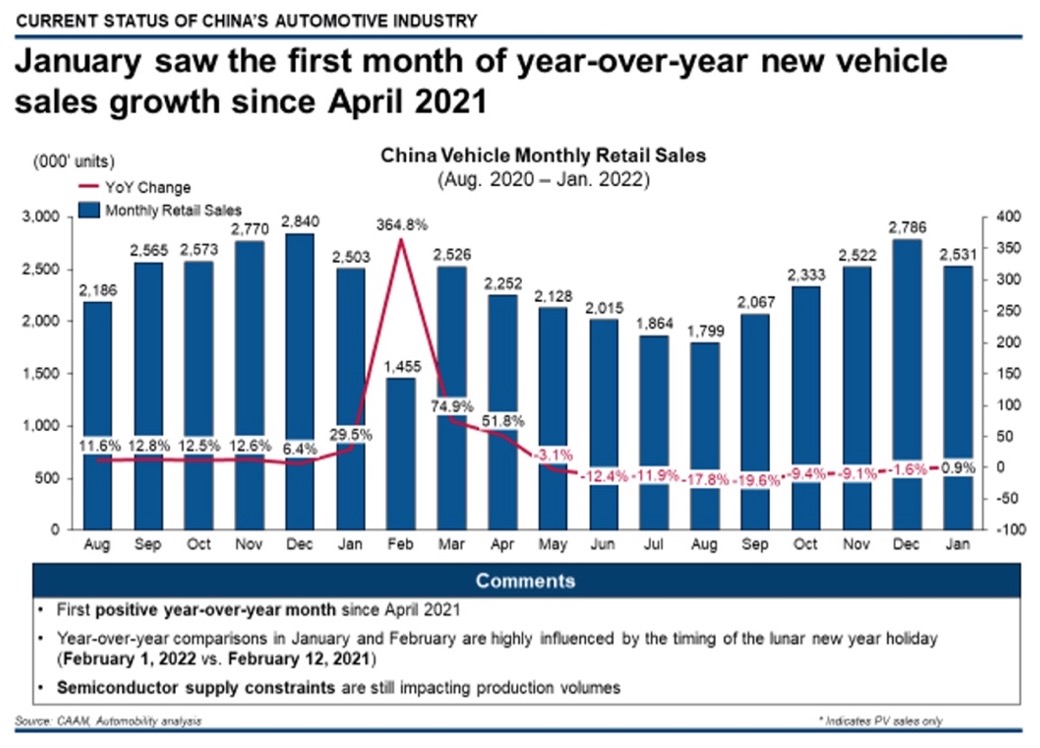Beyond BMW And Porsche: The Broader Implications Of China's Auto Market

Table of Contents
The Rise of Domestic Chinese Automakers
The narrative of China's auto market is increasingly dominated by the rapid ascent of domestic automakers. This surge is fueled by technological advancements, substantial government support, and a growing ambition for global reach.
Technological Advancements
Chinese automakers are making significant strides in technological innovation, particularly in the electric vehicle (EV) sector. They are rapidly closing the gap with established Western manufacturers in areas like battery technology, autonomous driving systems, and connected car features.
- BYD: A leading example, BYD's Blade Battery technology has significantly improved energy density and safety, challenging Tesla's dominance.
- NIO, Xpeng, and Li Auto: These companies are pushing boundaries in autonomous driving features and user-friendly interfaces, offering competitive alternatives to international brands.
- Significant investments in AI and software development: Chinese automakers are investing heavily in artificial intelligence and software development, creating sophisticated driver-assistance systems and in-car entertainment experiences. This focus on software differentiation is a key factor in their competitiveness.
- Impact on global EV competition: The rapid advancement of Chinese EV technology is intensifying global competition, forcing established manufacturers to accelerate their own EV development and potentially disrupting the global automotive landscape.
Government Support and Subsidies
The Chinese government plays a crucial role in the success of its domestic auto industry through various policies and initiatives. Substantial government support and subsidies have been instrumental in accelerating the adoption of electric vehicles and fostering technological innovation.
- Subsidies for EV purchases: Generous subsidies and tax breaks for EV buyers have significantly increased EV adoption rates in China, creating a large domestic market for Chinese automakers.
- Investment in charging infrastructure: Massive investments in building a nationwide network of charging stations are vital for the widespread adoption of EVs and are directly supporting the growth of the domestic EV industry.
- Development of key automotive technologies: The government actively funds research and development in key automotive technologies, further boosting the competitiveness of Chinese automakers.
Expanding Global Reach
Driven by technological advancements and government support, Chinese automakers are increasingly expanding their global reach. They are employing various strategies to penetrate international markets, posing a significant challenge to established players.
- Exporting vehicles directly to overseas markets: Many Chinese brands are directly exporting vehicles to countries in Europe, Asia, and South America, establishing a presence in new markets.
- Strategic partnerships and acquisitions: Collaborations and acquisitions of foreign companies are allowing Chinese automakers to access new technologies, distribution networks, and market expertise.
- Competitive advantages: Cost-effectiveness, technological innovation, and government support provide significant competitive advantages for Chinese automakers in the global market.
- Challenges: Overcoming brand perception, navigating regulatory hurdles in different countries, and managing supply chains are key challenges for Chinese automakers in their global expansion efforts.
Shifting Global Supply Chains
China's influence extends beyond its domestic automakers; it has profoundly impacted global automotive supply chains. This influence affects raw material dependence, manufacturing hubs, and technological innovation.
Raw Material Dependence
China holds a significant influence over the supply of crucial raw materials for the automotive industry, particularly rare earth minerals essential for electric vehicle batteries and other advanced components.
- Rare earth mineral dominance: China controls a significant portion of the global supply of rare earth minerals, creating potential vulnerabilities for countries relying on these resources.
- Battery component production: A substantial portion of battery components is manufactured in China, leading to concerns about supply chain security for EV manufacturers worldwide.
- Implications of potential disruptions: Disruptions to the supply of these critical materials could significantly impact the global automotive industry, highlighting the need for diversification of supply chains.
Manufacturing Hub
China's role as a major manufacturing hub for automobiles and components impacts global production costs and efficiency. Many global automakers rely on China for manufacturing, assembly, and parts sourcing.
- Impact on global manufacturing landscapes: China's manufacturing capabilities have shifted the global automotive manufacturing landscape, drawing significant investment and production to the country.
- Cost advantages: Lower labor costs and efficient manufacturing processes in China contribute to lower production costs for many automakers.
- Potential risks associated with reliance on Chinese manufacturing: Over-reliance on Chinese manufacturing creates potential vulnerabilities, including geopolitical risks and potential supply chain disruptions.
Technological Innovation and Intellectual Property
China's growing technological prowess in the automotive sector raises important questions about global intellectual property rights and innovation.
- Challenges of protecting intellectual property in China: Concerns remain about the protection of intellectual property rights in China, potentially hindering innovation and technology transfer.
- Potential for technology transfer: The rapid pace of technological advancement in China raises concerns about the potential for technology transfer, both willingly and unwillingly, potentially impacting global innovation.
Geopolitical Implications
China's burgeoning automotive industry has significant geopolitical implications, influencing trade relations, strategic competition, and the broader global power dynamic.
Trade Relations and Tensions
China's growing dominance in the automotive sector influences global trade relations and can lead to potential trade disputes.
- Impact on bilateral trade agreements: Trade agreements and tariffs involving automotive products have become increasingly important aspects of international relations.
- Potential trade wars and their impact on the auto industry: Trade disputes and potential trade wars can significantly disrupt global automotive supply chains and market access.
Strategic Competition
The automotive sector has become a key arena for strategic competition between China and other global powers.
- Government support and subsidies in shaping geopolitical competition: Government support and subsidies for domestic automakers play a crucial role in shaping global competition and influencing geopolitical dynamics.
- Strategic importance of automotive technology: The strategic importance of automotive technology, including autonomous driving and electric vehicle technologies, intensifies geopolitical competition.
Conclusion
China's auto market is evolving rapidly, surpassing the influence of established players like BMW and Porsche. Understanding the broader implications—from the rise of domestic automakers and the shift in global supply chains to increased geopolitical tensions—is crucial for businesses and policymakers alike. Ignoring the dramatic growth and influence of China's auto market is no longer an option. To stay ahead in this dynamic sector, businesses must actively monitor the developments within China's auto market and adapt their strategies accordingly. Further research and analysis into the intricacies of China's auto market are essential for navigating this complex and rapidly changing landscape.

Featured Posts
-
 Wang Suns Table Tennis Dominance Third Consecutive Mixed Doubles World Championship
May 31, 2025
Wang Suns Table Tennis Dominance Third Consecutive Mixed Doubles World Championship
May 31, 2025 -
 Megarasaray Hotels Acik Turnuvasi Nda Ciftler Sampiyonlugu Bondar Ve Waltert In Zaferi
May 31, 2025
Megarasaray Hotels Acik Turnuvasi Nda Ciftler Sampiyonlugu Bondar Ve Waltert In Zaferi
May 31, 2025 -
 Adverse Drug Test Munguia Responds With Denial
May 31, 2025
Adverse Drug Test Munguia Responds With Denial
May 31, 2025 -
 Analysis A New Covid 19 Variant And The Recent Rise In Cases
May 31, 2025
Analysis A New Covid 19 Variant And The Recent Rise In Cases
May 31, 2025 -
 Is This The Good Life For You A Self Assessment Guide
May 31, 2025
Is This The Good Life For You A Self Assessment Guide
May 31, 2025
